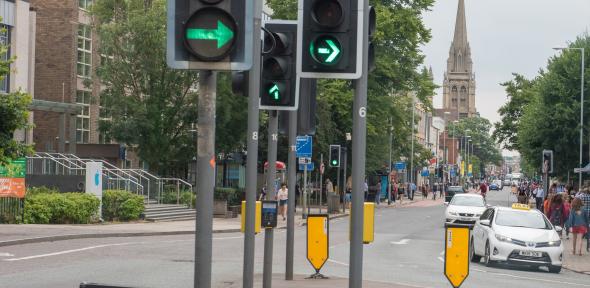
At the end of last year the Greater Cambridge Partnership (GCP) ran a consultation on proposals to change the way people travel in Cambridge.
The proposals included a new bus network for the city alongside improvements to cycling and walking routes, with revenue to be generated through a road charging scheme. The University submitted a response to the consultation which can be found on our website.
In response to the feedback received during the consultation the GCP has now announced a revised package of measures around the proposed Sustainable Travel Zone. The charge - £5 for cars, £10 for vans and £50 for HGVs and coaches remains the same, but key amendments include:
- peak time only charging – with six hours charge time instead of 12
- 50 free days for car users
- 50 per cent discount for locally owned SMEs
- low-income discounts
- further hospital exemptions
- no charge for motorcyclists.
These revised proposals will now be considered by the GCP Joint Assembly and GCP Board during the course of September. For more information please visit the Greater Cambridge Partnership website.
The University will continue to monitor next steps. It will consider how the University’s own transport offering can best complement any proposals that are progressed and how the University can best support the staff and student community to respond to the impact of the proposals.
Professor David Cardwell, Pro-Vice-Chancellor for Strategy and Planning, said:
“We welcome that substantial adjustments are now being considered to the Making Connections proposals based on the feedback received during consultation, and that the GCP has listened to the concerns and suggestions expressed.
“This new package moves us towards much-needed action to transform the transport system we have in Cambridge - reducing traffic, enabling a more reliable public transport service, improving air quality, and creating a safer environment for walking and cycling.
“It remains imperative that public transport must be significantly improved before the introduction of any charge and that a range of supportive measures, across all forms of transport, are provided for those most affected, including those with the most complex needs and lowest incomes.”
Please email travel@admin.cam.ac.uk if you have any further questions.
